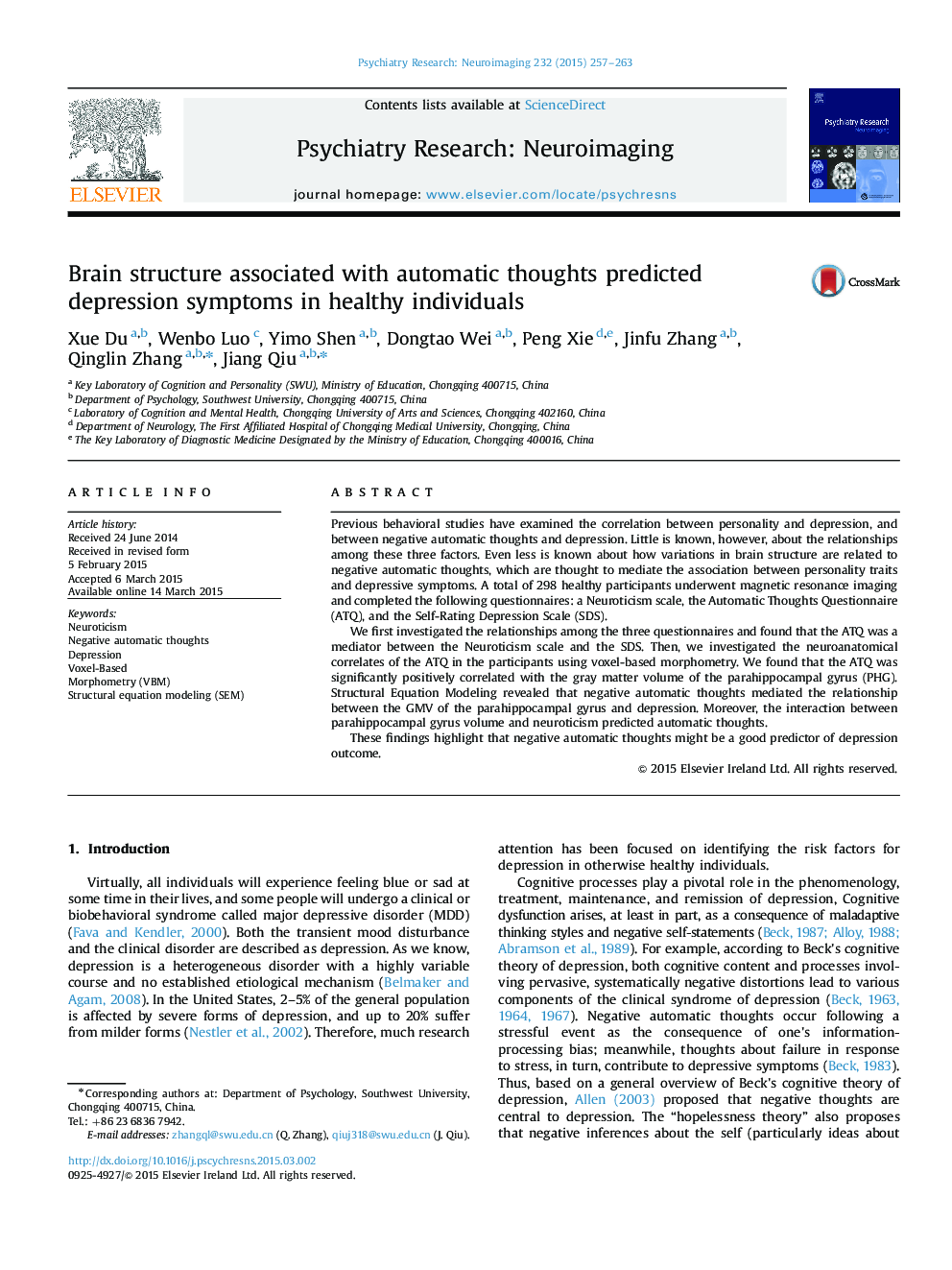| Article ID | Journal | Published Year | Pages | File Type |
|---|---|---|---|---|
| 335283 | Psychiatry Research: Neuroimaging | 2015 | 7 Pages |
•Automatic thoughts mediated the association between neuroticism and depression in a sample of normal participants.•Automatic thoughts were positively correlated with individual differences in the volume of the parahippocampal gyrus.•Negative automatic thoughts significantly mediated the relationship between the gray matter volume of the parahippocampal gyrus and depression.•The interaction between parahippocampal gyrus volume and neuroticism predicted automatic thoughts.•Negative automatic thoughts might be a good predictor for depression outcome.
Previous behavioral studies have examined the correlation between personality and depression, and between negative automatic thoughts and depression. Little is known, however, about the relationships among these three factors. Even less is known about how variations in brain structure are related to negative automatic thoughts, which are thought to mediate the association between personality traits and depressive symptoms. A total of 298 healthy participants underwent magnetic resonance imaging and completed the following questionnaires: a Neuroticism scale, the Automatic Thoughts Questionnaire (ATQ), and the Self-Rating Depression Scale (SDS).We first investigated the relationships among the three questionnaires and found that the ATQ was a mediator between the Neuroticism scale and the SDS. Then, we investigated the neuroanatomical correlates of the ATQ in the participants using voxel-based morphometry. We found that the ATQ was significantly positively correlated with the gray matter volume of the parahippocampal gyrus (PHG). Structural Equation Modeling revealed that negative automatic thoughts mediated the relationship between the GMV of the parahippocampal gyrus and depression. Moreover, the interaction between parahippocampal gyrus volume and neuroticism predicted automatic thoughts.These findings highlight that negative automatic thoughts might be a good predictor of depression outcome.
